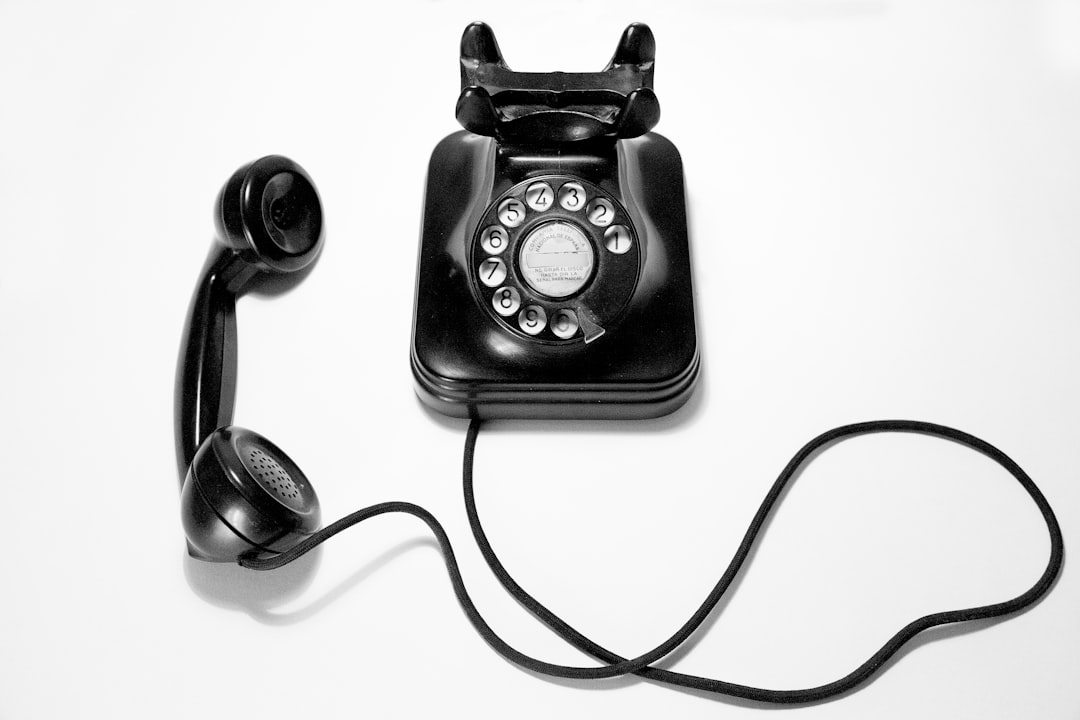In Alabama, automated phone messages (robocalls) are regulated by the Telephone Consumer Protection Act (TCPA), offering consumers legal recourse against unwanted telemarketing. If you receive fraudulent or unconsented robocalls in Decatur, document caller information and consider suing under the TCPA for compensation. Register on the National Do-Not-Call Registry and utilize call-blocking tools to reduce robocalls. Consulting a consumer protection attorney is recommended before taking legal action, especially regarding class-action lawsuits and significant settlements against mass robocall campaigns.
Staying informed is key to combating robocalls in Decatur, Alabama. This guide navigates the bustling landscape of automated calls, delving into their legal implications and how they impact residents. We’ll show you how to identify and document robocall incidents, leverage the Do-Not-Call Registry for defense, and explore legal options, including the potential to sue for robocalls in Alabama. Additionally, discover practical measures to fortify your protection against these persistent calls.
Understanding Robocalls and Their Legal Implications in Alabama

Robocalls, automated phone calls that deliver pre-recorded messages, have become a ubiquitous part of modern communication, often with unwanted or fraudulent intent. In Alabama, as in many states, robocalls are regulated by the Telephone Consumer Protection Act (TCPA), a federal law designed to protect consumers from certain types of telemarketing practices. Violations of this law can result in significant legal consequences for callers.
If you receive robocalls in Decatur, Alabama, and believe they are unwanted or fraudulent, you may have legal recourse. The TCPA allows individuals to take legal action against businesses or organizations that violate its provisions, including seeking damages for each violation. This means if a company is calling you without your prior consent, you could potentially sue for robocalls in Alabama and recover money damages. It’s important to note the specifics of the law and your rights, as there are certain exemptions and rules regarding permissible calls.
Identifying and Documenting Robocall Incidents in Decatur

In Decatur, identifying and documenting robocall incidents is a crucial step in understanding and addressing the problem. If you receive unwanted automated calls, note down the caller ID, the time and date of the call, and any specific messages or offers mentioned. This information can be invaluable when determining the source of the calls and potential legal recourse.
Documenting each instance helps track patterns and identifies recurring offenders, especially if the calls violate local or state laws regarding telemarketing practices. While Alabama has regulations in place to curb excessive robocalls, including provisions for Can I Sue For Robocalls, it’s essential to maintain detailed records of each incident to support any legal actions you may consider taking against the culprits.
The Do-Not-Call Registry: Your First Line of Defense

In an effort to stay ahead of unwanted robocalls, one of your first steps should be to register your number on the National Do-Not-Call Registry. This federal list prohibits telemarketers from calling numbers listed on it, offering a significant barrier against robocallers. By simply registering your phone number, you’re taking a crucial step in reducing the frequency of these calls.
In Alabama, as in many states, there are additional protections and regulations regarding robocalls, including the ability to sue for damages if you’ve been affected by them. The Do-Not-Call Registry serves as a foundational defense, but understanding your legal rights is equally important. Knowing how to identify robocalls and taking proactive measures can empower you to better protect yourself from these intrusive calls.
Legal Options: Can You Sue for Robocalls in Alabama?

In Alabama, there are federal and state laws in place to protect consumers from robocalls. If you’ve received unwanted automated calls, you may have legal options. The Telephone Consumer Protection Act (TCPA) prohibits automated phone calls for marketing purposes unless the caller has your prior express consent. You can take action if a business or individual violates this law by filing a complaint with the Federal Trade Commission (FTC) or bringing a private lawsuit in court.
If you’ve been harmed by robocalls, such as experiencing stress, anxiety, or financial loss due to deceptive practices, you might be entitled to compensation. Class-action lawsuits have been filed against companies for massive robocall campaigns, resulting in settlements that could provide relief to affected consumers. However, it’s important to note that filing a lawsuit requires gathering evidence and understanding the specifics of your case. Consulting with an attorney specializing in consumer protection law can help determine if taking legal action is the best course of response when dealing with annoying or illegal robocalls in Alabama.
Protecting Yourself: Additional Measures to Stop Robocalls

To protect yourself from robocalls, consider going beyond just blocking numbers. In Decatur, Alabama, you have legal rights and options to take action against unwanted calls. One effective measure is to register your phone number on the National Do Not Call Registry, which can prevent many pre-recorded messages from reaching your line. Additionally, using call-blocking apps or purchasing a robocall-filtering service can significantly reduce the volume of automated calls you receive.
If a robocall persists despite these measures, it’s crucial to know that in Alabama, you may have legal recourse. The Telephone Consumer Protection Act (TCPA) allows individuals to sue for damages if they’ve received unwanted calls. Documenting the calls, including timestamps and call content, can be helpful evidence if you decide to pursue legal action. Remember, staying informed and proactive about your privacy settings and legal rights are key to minimizing the impact of robocalls in Decatur, Alabama.






